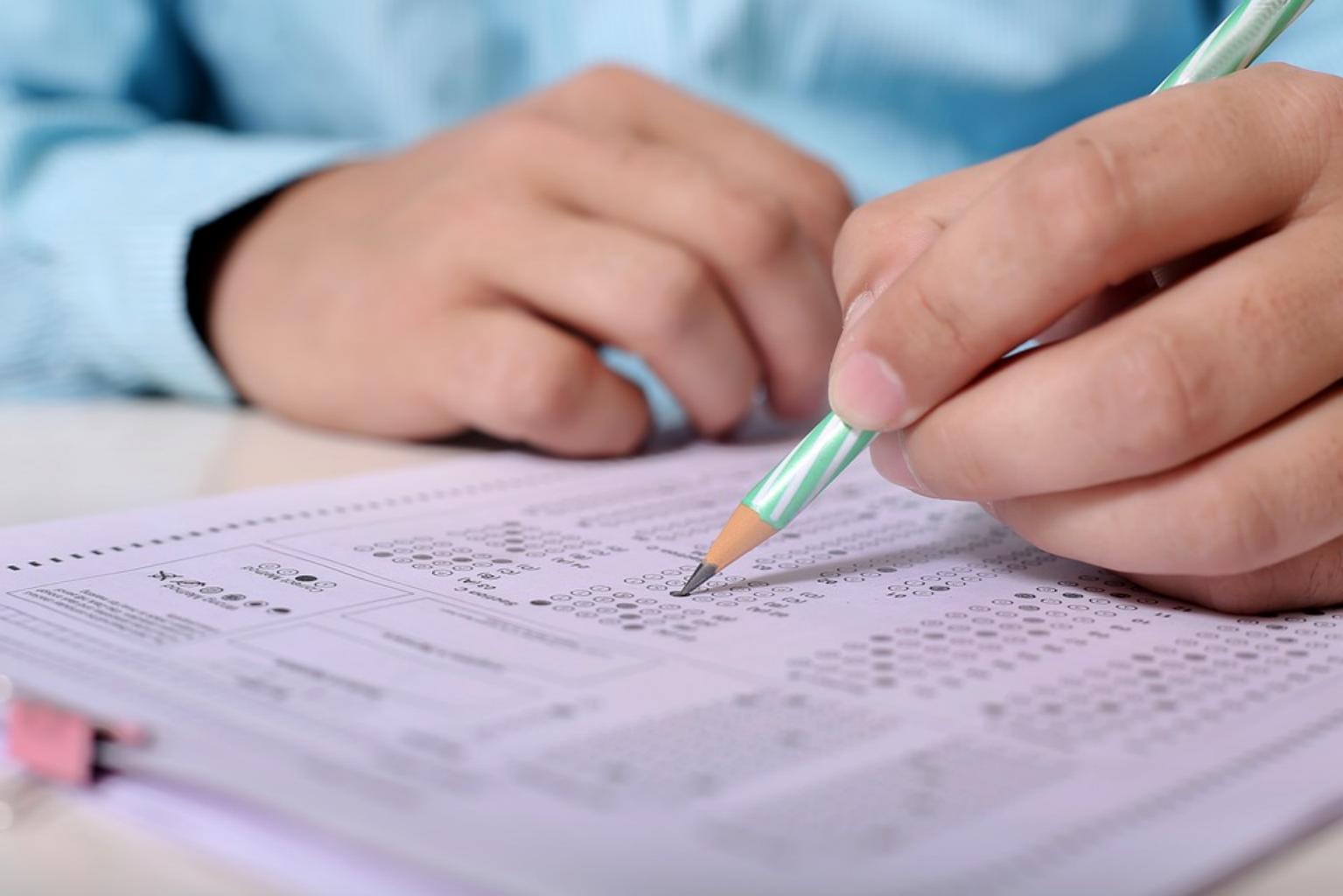'Speechless': Some parents, kids upset over tough PSLE maths paper
Sign up now: Get tips on how to help your child succeed

One parent said she received a tearful call from her daughter after the first paper saying it was more difficult than she had expected.
PHOTO ILLUSTRATION: PIXABAY
SINGAPORE - The difficulty of the PSLE maths paper has once again become a matter of contention, with some parents saying it was so tough that their kids were left in tears.
There were two maths papers on Friday (Oct 1).
One parent said she received a tearful call from her daughter after the first paper, saying it was more difficult than she had expected.
Mrs Daphne Tan, 44, said: "I cried too. Especially since I knew that she had prepared so much for the exam."
The regional head of marketing said a school counsellor calmed her 12-year-old daughter down.
Exam preparations this year have been stressful, said Mrs Tan, especially since the whole family had been quarantined in August.
"Leading up to PSLE, I was watching the news every day praying that my child doesn't get Covid-19," she said. Mrs Tan has another daughter in Primary 4.
This year's PSLE for Primary 6 pupils started on Thursday and will end on Tuesday, with a number taking the exams under quarantine orders in the midst of Singapore's largest surge in Covid-19 cases.
Mrs Tan was among many parents who noted that the new PSLE Achievement Levels (AL) scoring system had mounted pressure on pupils sitting difficult exams.
Former director in the engineering underwriting industry Hong Lian Ai, who is in her 40s, said that unlike in the past, this group of pupils would not have their grades benchmarked against the rest of their cohort.
"Whatever achievement level they get is what they get, there is no longer a bell curve, and the exam felt harder than the 2020 paper."
This year's pupils are the first to use the new scoring system, which no longer grades them on their performance relative to their cohort in the form of a T score.
Instead, they are given grade bands between AL1 and AL8 based on their absolute scores, with 1 being the best.
The ALs for their subjects are then added up to give them their PSLE score.
In April, MOE director-general of education Wong Siew Hoong said the aim of the new grading system is to help pupils not feel like they have to chase the last mark.
Under the new scoring system, pupils will not need to achieve a perfect score to enter top schools.
Echoing other parents, Madam Gina Teo, 40, who works in sales, told ST that the pandemic has been a struggle of constant adjustment and adapting to two years of home-based learning.
On Friday, her daughter returned home saying she had given up on entering the school of her dreams as the paper was the toughest she had ever encountered.
Said Madam Teo: "All my friends were left speechless after hearing how hard the paper was from their children and that many were unable to complete their papers. We knew that the PSLE mathematics paper would be hard but they should have set the difficulty at the same level as last year's paper."
In response to queries from ST, the Singapore Examinations and Assessment Board (SEAB) said: "All examinations have a range of questions with varying difficulty that cater to the wide range of abilities of our students.
"We would like to encourage all students to stay the course and be reassured that having done their best, there will be multiple pathways of success."
"We would like to encourage all students to stay the course and be reassured that having done their best, there will be multiple pathways of success."
Counsellor Priyahnisha N. told The Straits Times that this year's PSLE might be extra challenging for children, given the frequent changes such as heightened Covid-19 measures, school closures and fluctuations between in-person lessons and home-based learning.
She said: "As expected, not many children are keen or responsive to online learning and this might pose a challenge to retention and revision.
"As such, it may be more difficult and pressurising for children to perform well."
The counsellor from online counselling platform Talk Your Heart Out told ST that it is important for parents to acknowledge the stress and anxiety that children are experiencing and that having open conversations around performance and meeting expectations is important.
She said: "Being reassuring and affirmative of the child's efforts provides the validation and comfort that he or she needs."
Ms Bernadette Clara Yeo and Ms Lim Pin Xiu, co-founders of Bramble, a start-up which focuses aiding parent-child communication, suggested that parents and their children make time for relaxation over the weekend instead of rushing to prepare for the next exam.
Ms Lim said: "Your actions, more than your words, will remind them that there's more to life than exams,"
"Take a mini-break together over the weekend! Go out for a walk, or treat them to their favourite ice cream."


